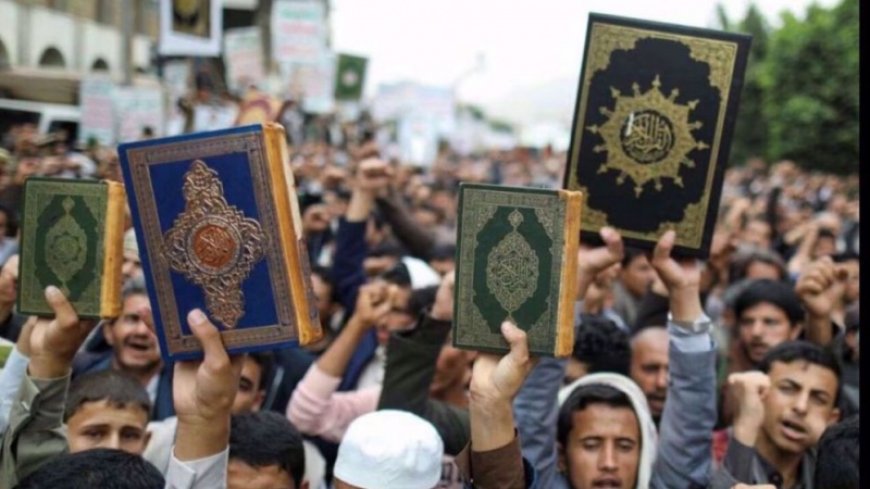In the face of mounting Muslim fury, the EU condemns Holy Qur'an sacrilege
In the face of mounting Muslim fury, the EU condemns Holy Qur'an sacrilege

Josep Borrell, the European Union's foreign policy leader, branded the recent terrible acts of destruction of the Holy Qur'an "disrespectful" and urged for mutual understanding and respect. In the last month, radical characters have desecrated the Muslim holy book in three different occasions in Sweden and Denmark, whose governments have defended such assaults as "free expression."
"The EU reiterates its unequivocal and unwavering opposition to any form of incitement to religious hatred and intolerance." The European Union's basic value is respect for diversity. "This includes respect for other religious communities," stated Borrell in a statement issued on Wednesday. In late June, an Iraqi immigrant living in Sweden named Salwan Momika desecrated the Holy Koran in front of Stockholm's largest mosque. On Thursday, he repeated the sacrilege outside the Iraqi consulate in the same location, this time under the close protection of Swedish police. Members of the anti-Islamic Danish organization Danske Patrioter desecrated the Muslim holy book outside the Iraqi consulate in Copenhagen on Friday. In another blasphemous act against the Muslim holy book, a tiny far-right gang set fire to copies of the Koran in front of the Egyptian and Turkish embassies in Copenhagen on Tuesday.
"Desecration of the Koran or any other sacred book is offensive, disrespectful, and clearly provocative." Racism, xenophobia, and other forms of intolerance have no place in the European Union," Borrell continued. "We remain committed to religious or belief freedom and freedom of expression at home and abroad; however, not everything that is legal is also ethical," the EU foreign policy leader added. Borrell also urged people to unite for "mutual understanding and respect," emphasizing that such provocations by individuals "only benefit those who want to divide us and our societies." The sacrileges have sparked outrage around the Muslim world, particularly in Iran, with all Muslim countries strongly denouncing the heinous blasphemy.













































